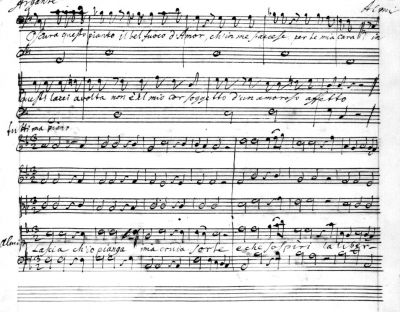George Frideric (or Frederick) Handel (; baptised Georg Friedrich Hndel, German: [ek fid hndl] (listen); 23 February 1685 14 April 1759) was a German-British Baroque composer well known for his operas, oratorios, anthems, concerti grossi, and organ concertos. Handel received his training in Halle and worked as a composer in Hamburg and Italy before settling in London in 1712, where he spent the bulk of his career and became a naturalised British subject in 1727. He was strongly influenced both by the middle-German polyphonic choral tradition and by composers of the Italian Baroque. In turn, Handel's music forms one of the peaks of the "high baroque" style, bringing Italian opera to its highest development, creating the genres of English oratorio and organ concerto, and introducing a new style into English church music. He is consistently recognized as one of the greatest composers of his age.Handel started three commercial opera companies to supply the English nobility with Italian opera. In 1737, he had a physical breakdown, changed direction creatively, and addressed the middle class and made a transition to English choral works. After his success with Messiah (1742), he never composed an Italian opera again. His orchestral Water Music and Music for the Royal Fireworks remain steadfastly popular. One of his four coronation anthems, Zadok the Priest, has been performed at every British coronation since 1727. Almost blind, he died in 1759, a respected and rich man, and was given a state funeral at Westminster Abbey.
Handel composed more than forty opere serie over a period of more than thirty years. Since the late 1960s, interest in Handel's music has grown. The musicologist Winton Dean wrote that "Handel was not only a great composer; he was a dramatic genius of the first order." His music was admired by Classical-era composers, including Mozart and Beethoven.
Rinaldo (HWV 7) is an opera by George Frideric Handel, composed in 1711, and was the first Italian language opera written specifically for the London stage. The libretto was prepared by Giacomo Rossi from a scenario provided by Aaron Hill, and the work was first performed at the Queen's Theatre in London's Haymarket on 24 February 1711. The story of love, war and redemption, set at the time of the First Crusade, is loosely based on Torquato Tasso's epic poem Gerusalemme liberata ("Jerusalem Delivered"), and its staging involved many original and vivid effects. It was a great success with the public, despite negative reactions from literary critics hostile to the contemporary trend towards Italian entertainment in English theatres.
Handel composed Rinaldo quickly, borrowing and adapting music from operas and other works that he had composed during a long stay in Italy in the years 1706–10, during which he established a considerable reputation. In the years following the premiere, he made numerous amendments to the score. Rinaldo is regarded by critics as one of Handel's greatest operas. Of its individual numbers, the soprano aria "Lascia ch'io pianga" has become a particular favourite, and is a popular concert piece.
Handel went on to dominate opera in England for several decades. Rinaldo was revived in London regularly up to 1717, and in a revised version in 1731; of all Handel's operas, Rinaldo was the most frequently performed during his lifetime. After 1731, however, the opera was not staged for more than 200 years. Renewed interest in baroque opera during the 20th century led to the first modern professional production in Handel's birthplace, Halle, Germany, in 1954. The opera was mounted sporadically over the following thirty years; after a successful run at New York's Metropolitan Opera in 1984, performances and recordings of the work have become more frequent worldwide. Rinaldo was the first Handel opera to have found its way to the Metropolitan. The opera's tercentenary in 2011 brought a modernized production at the Glyndebourne Festival.

 English
English  español
español  français
français  português
português  русский
русский  العربية
العربية  简体中文
简体中文 
